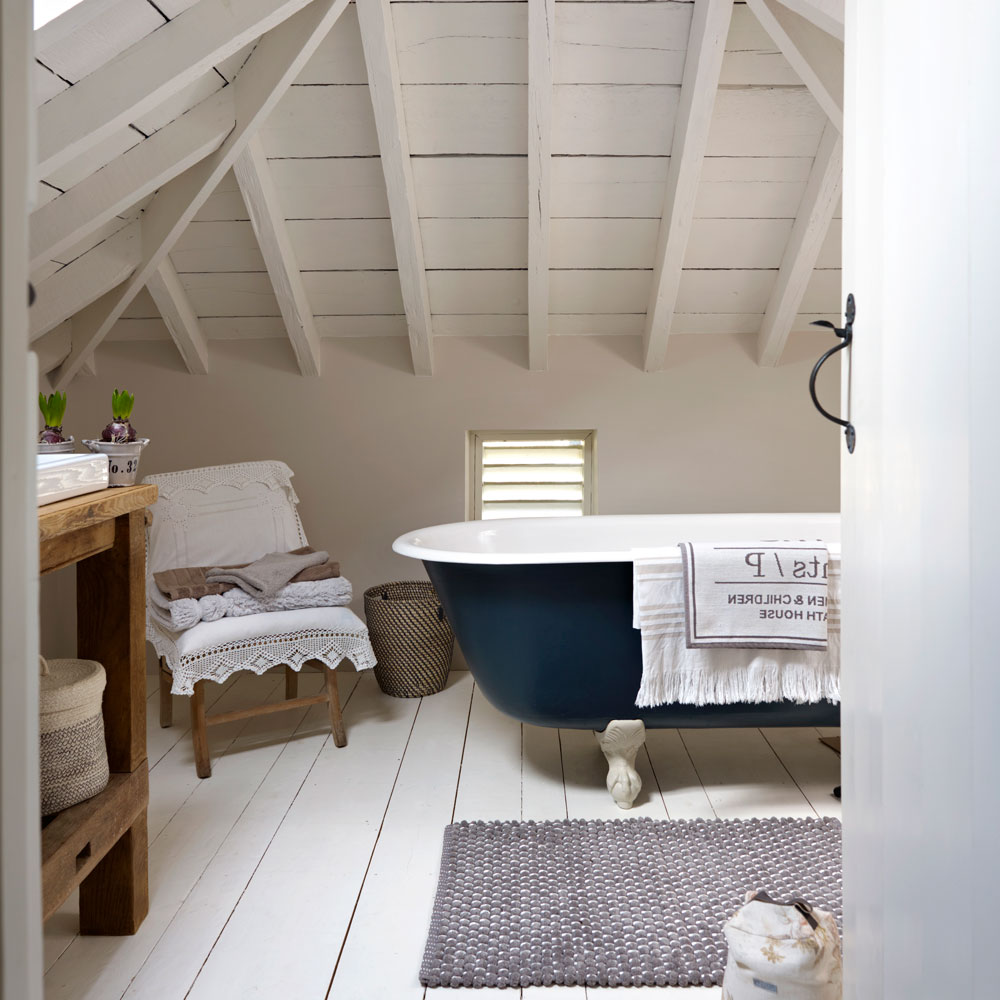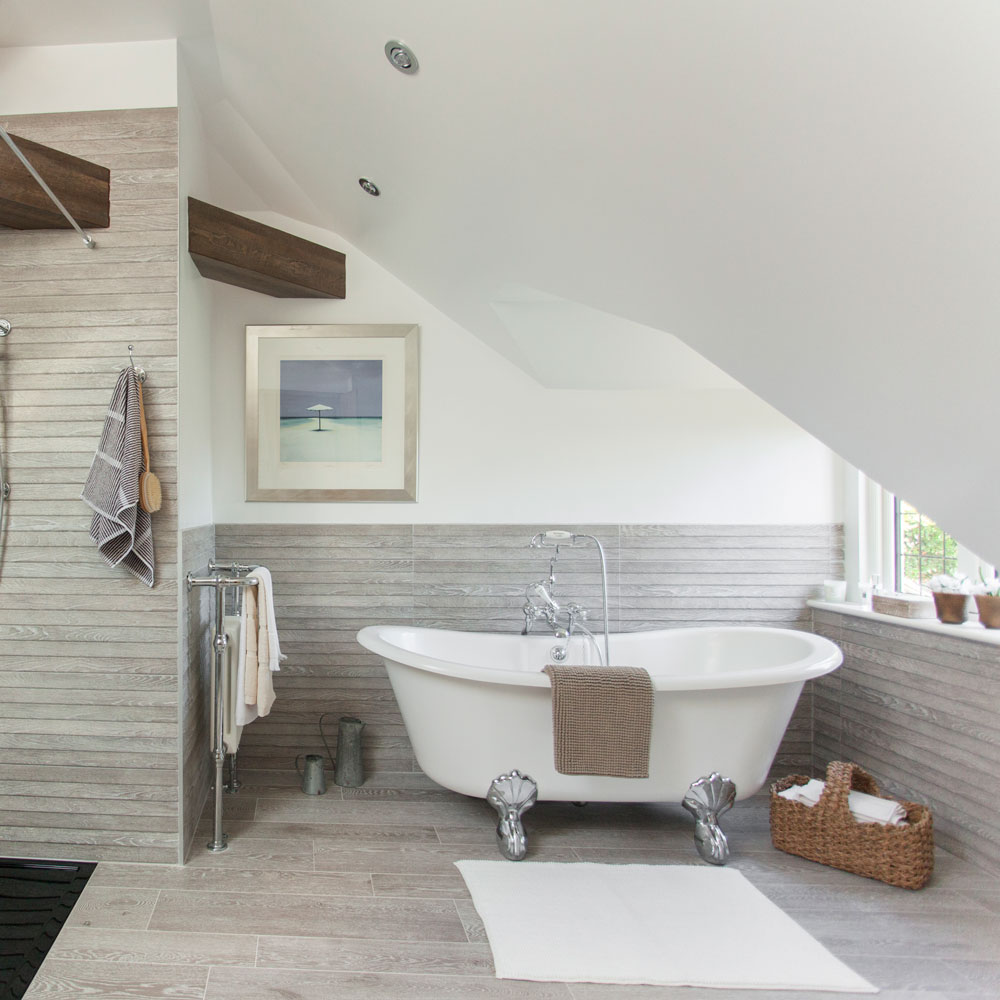Loft insulation grants – what is available?
Find out what grants are currently available in the UK for insulating your attic, loft or flat roof

Insulating your loft, attic or flat roof is an effective way to reduce heat loss and reduce your heating bills. If the cost is prohibitive for you, there are loft insulation grants and freebies available. These are for households that qualify, to help cover the outlay. Around £3m measures were delivered through The Energy Company Obligations (ECO) grant by the end of December 2020.
Energy Savings Trust states that when installed correctly, loft insulation should pay for itself many times over in its 40-year lifetime. Unfortunately for some, the cost of insulating your home can prove too expensive, which is why the government created loft insulation grants to help those in need.
‘They’re aimed at those who need them most, such as those on low incomes or people who are receiving benefits such as Pension or Universal Credit,’ says property and construction expert Thomas Goodman at MyJobQuote.co.uk.
With ever increasing energy bills, now is a good time to look for ways to reduce your home’s energy consumption. One of the easiest and most cost-effective solutions is to install loft insulation.
According to Energy Saving Trust, installing 270mm loft insulation will cost around £395 for a detached house. However the benefits far outweigh the initial outlay, with a potential yearly saving of £380 off your energy bill.
What loft insulation grants are available in the UK?

Read on to find out what loft insulation grants are on offer and if you’re eligible.
1. The Energy Company Obligations (ECO scheme)
This was put in place by the government to help reduce England’s carbon emissions and tackle fuel poverty. It’s funded by individual energy suppliers who, if they have more than 150,000 customers, are required by the government to promote the installation of measures that lead to financial savings on energy bills. This includes the installation of insulation and/or a boiler replacement.
Get the Ideal Home Newsletter
Sign up to our newsletter for style and decor inspiration, house makeovers, project advice and more.
Bear in mind that the number and type of measures each supplier will install is down to each individual supplier. To find out which energy companies are currently part of the scheme, visit the Ofgem website.
It’s likely that you will qualify for these loft insulation grants if you own your own home (or have permission from your landlord) AND you currently claim the Warm Home Discount and are in the ‘core group’. You also qualify if you or someone living at the property receives benefits such as child benefit, universal credit or pension credit.
For a full list of qualifying benefits visit Ofgem. Alternatively, if you are living in social housing with an EPC rating of E, F or G, you may also be eligible for the scheme.
- How to apply You have to apply for the ECO loft insulation grants via your home energy supplier and each company’s process is different. But as an example, British Gas customers can register their interest on the company’s website. One of its trusted partners (who is TrustMark registered) will contact you to assess your criteria and whether your home is suitable. They will also advise on any financial contribution you may have to make, as you may not be offered the full 100 per cent of the cost of installation. If you decide to go ahead, all arrangements are made directly with the installer. Any financial contribution is paid direct to your installer.
2. The NEST scheme

The Welsh government provides free advice and support to help people improve the energy efficiency of their home, which can include a package of free home improvements such as a replacing a boiler, central heating or insulation.
You could be eligible for free energy efficiency improvements if you meet all three conditions below:
- Ownership or privately renting (not from a local authority or housing association)
- Your home is energy inefficient and expensive to heat
- You or someone you live with receives a means tested benefit. OR has a chronic respiratory, circulatory or mental health condition and an income below the defined thresholds.
- How to apply To find out what means tested benefits qualify and what the health eligibility criteria is, visit NEST. To apply, call 0808 808 2244 or request a call back via an online form. A Nest advisor will ask you some questions to see if you and your property qualify for free home energy efficiency improvements. If you qualify, they will arrange for a Nest assessor to visit to see what energy efficiency improvements they can offer.
3. Warmer Homes Scotland scheme

Much like England’s ECO, this loft insulation grant is designed to help people make their homes warmer and more comfortable by installing a range of energy-saving improvements that save money on your utility bills. In most cases all costs will be met by the Scottish Government, although sometimes a customer contribution is required.
- How to apply There’s a plethora of criteria that you need to meet to qualify. These include being the homeowner or the tenants of a private-sector landlord. You need to have lived there for at least 12 months and the house can’t be bigger than 230m2. You also need to receive certain benefits. For a full list of requirements, visit Home Energy Scotland. You can apply for the grant by calling 0808 808 2282 or using the online contact form. You’ll be offered a survey of your property and a referral to the managing agent Warmworks Scotland.
Are there any specialist loft insulation grants for pensioners?
The ECO, Nest and Warmer Homes Scotland schemes all offer loft insulation grants to those who receive a pension credit. But you still need to check with your energy supplier for the ECO, and Nest and Warmer Homes Scotland direct, as each will have its own set of criteria you have to meet.

Sophie Vening is a freelance journalist and editor with more than 16 years’ experience writing about homes and properties. She’s worked for some of the UK’s leading interiors, self-build and property titles including, Grand Designs, Ideal Home, House Beautiful, Build It, The Metro Homes & Property and The Evening Standard Homes & Property.
She enjoys writing about complex issues in an easy-to-understand way.
-
 Will a conservatory add value to your home and how can you maximise it?
Will a conservatory add value to your home and how can you maximise it?This is what the pros say
By Amy Reeves
-
 I’ve been looking for a new signature scent for my home and The White Company's new fragrance is the exact summer holiday smell I needed
I’ve been looking for a new signature scent for my home and The White Company's new fragrance is the exact summer holiday smell I neededSantorini smells fresh, summery and sophisticated
By Kezia Reynolds
-
 How to remove algae from garden walls in five steps – and the cleaning product experts rave about for tackling it fast
How to remove algae from garden walls in five steps – and the cleaning product experts rave about for tackling it fastExperts share their top tips for getting garden walls algae-free
By Katie Sims